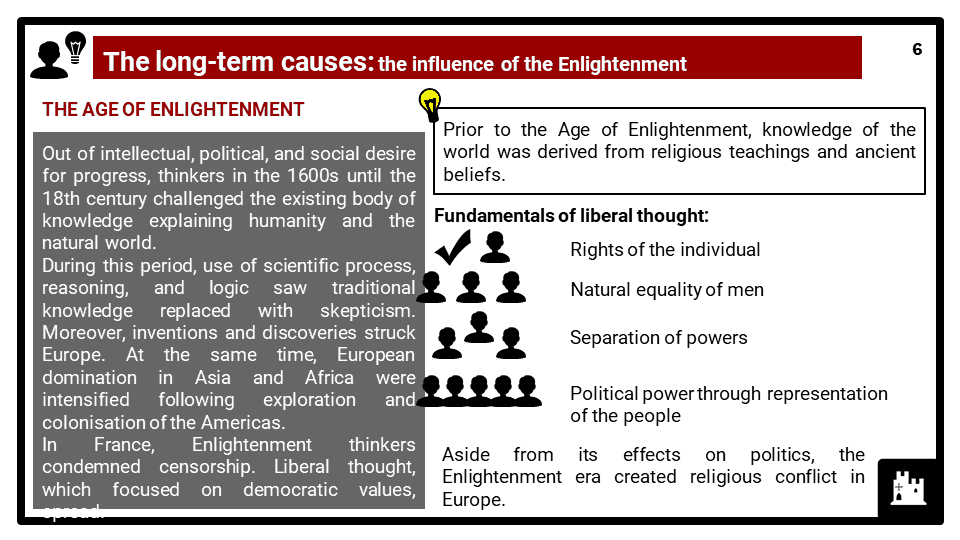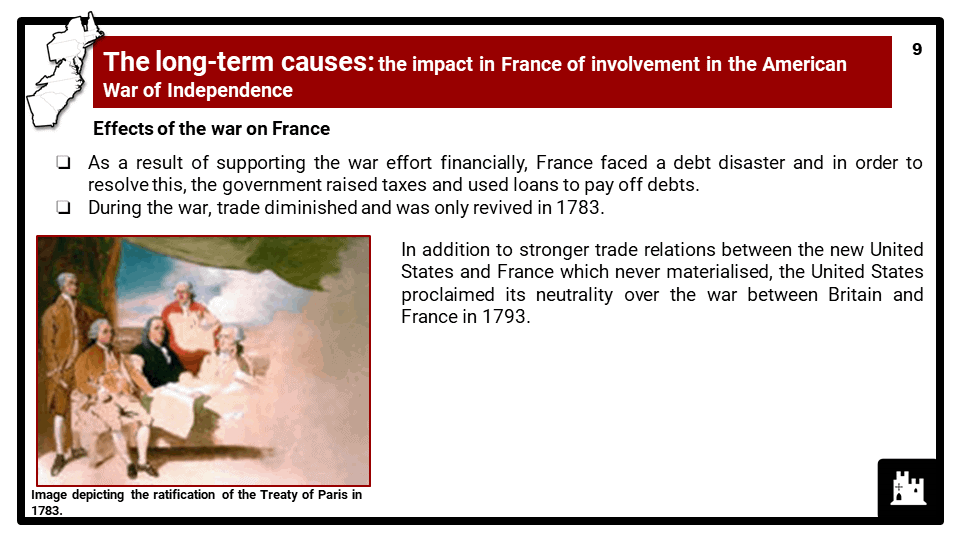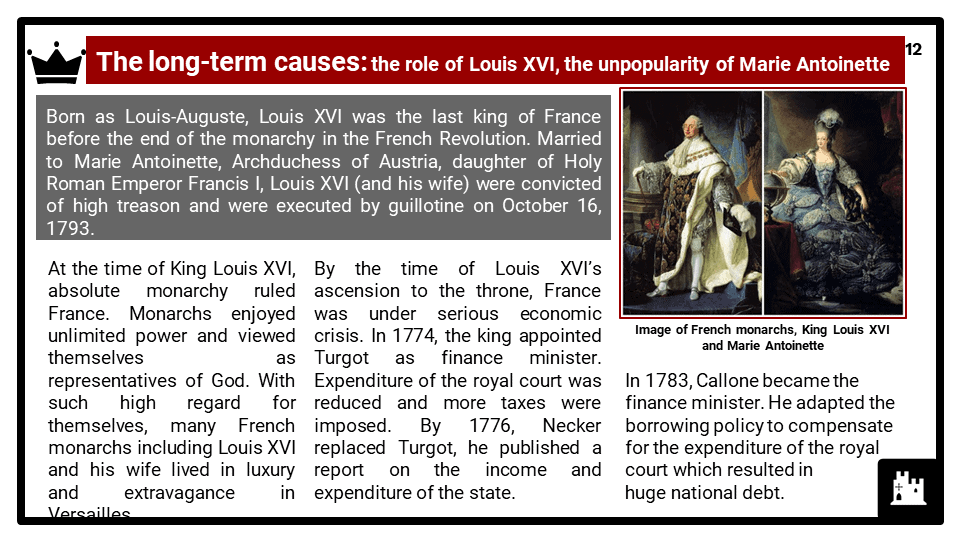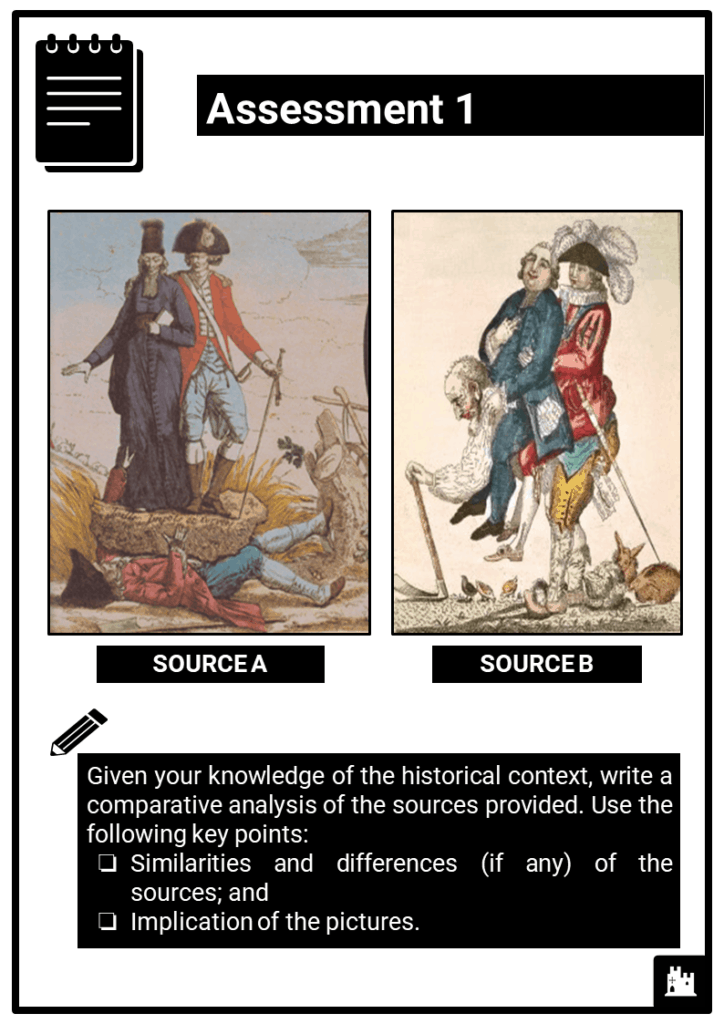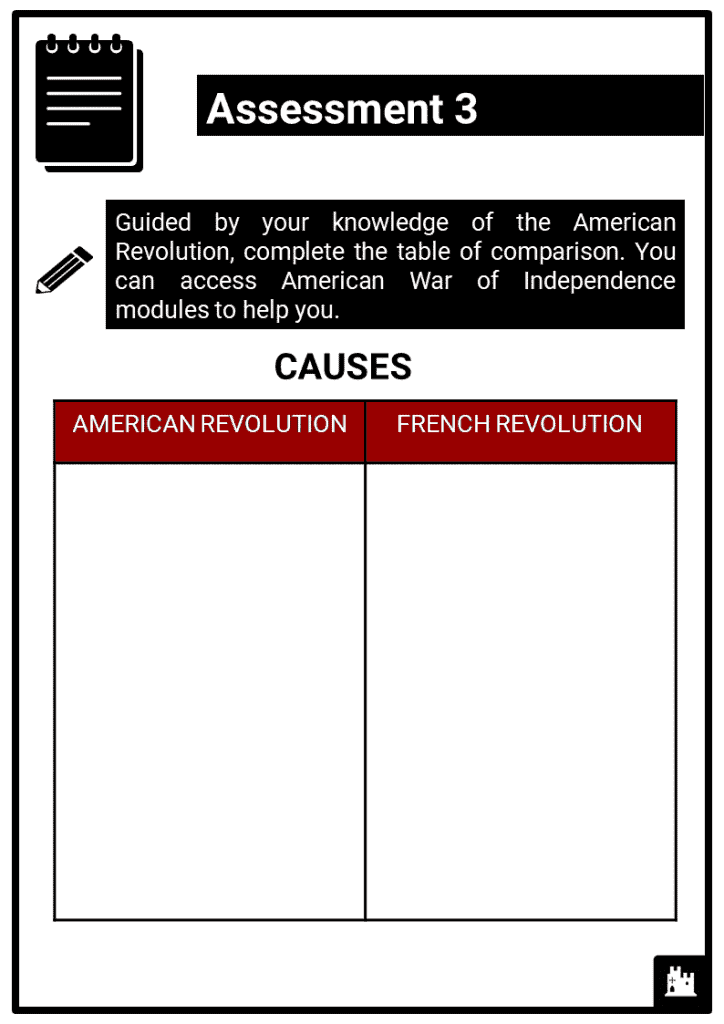Teach any Edexcel IGCSE: The French Revolution, c1780–99, no prep needed!
Do you want to save dozens of hours in time? Get your evenings and weekends back? Be fully prepared to teach any Edexcel iGCSE topic?
Every Edexcel iGCSE topic is covered, and each module comes complete with:
Paper 1: Depth Studies, The French Revolution, c1780–99
What students need to learn:
- The origins of the Revolution, c1780–87
- The long-term causes: the influence of the Enlightenment, the impact in France of involvement in the American War of Independence, the Three Estates – their duties and privileges, the role of Louis XVI, the unpopularity of Marie Antoinette, the reasons for and extent of financial problems, policies of Necker, the problem of poor harvests.
- Short-term causes of the Revolution: from Assembly of Notables to Estates General, 1787–89
- The short-term causes: the Assembly of Notables (1787), the policies of Calonne and Brienne and their consequences, the key events of 1789 and their causes and consequences, including the meeting of the Estates-General, the Tennis Court Oath, the storming of the Bastille, the Grande Peur, the setting up of the National Assembly.
- Developments 1789–92
- Changes brought about by the Constituent Assembly (1789–91), the flight to Varennes and its impact, the roles of the Sans-Culottes, Girondins and Jacobins, the Legislative Assembly (1791–92), the declaration of war on Austria and Prussia and its impact, the reasons for the coup of August 1792 and the setting up of the National Convention.
- Convention and Terror, 1792–94
- The National Convention, the Edict of Fraternity, the trial and execution of Louis XVI, the work of the Committee of Public Safety, the elimination of the Girondins, the role of Robespierre, the reason for and impact of the Terror.
- Directory and First Consul – the fall of Robespierre to the rise of Napoleon, 1794–99
- Reasons for Robespierre’s downfall and execution. The Thermidorian Reaction, the White Terror; the setting up of the Directory, its limitations and achievements, the royalist challenge and the coup of 18 Fructidor, the reasons for the fall of the Directory; Napoleon Bonaparte named “First Consul”, achievements of the Revolution in France (1789–99).

